Women Leading the Way: Yemen's Peace Ambassadors are Making a Difference
April 17, 2024
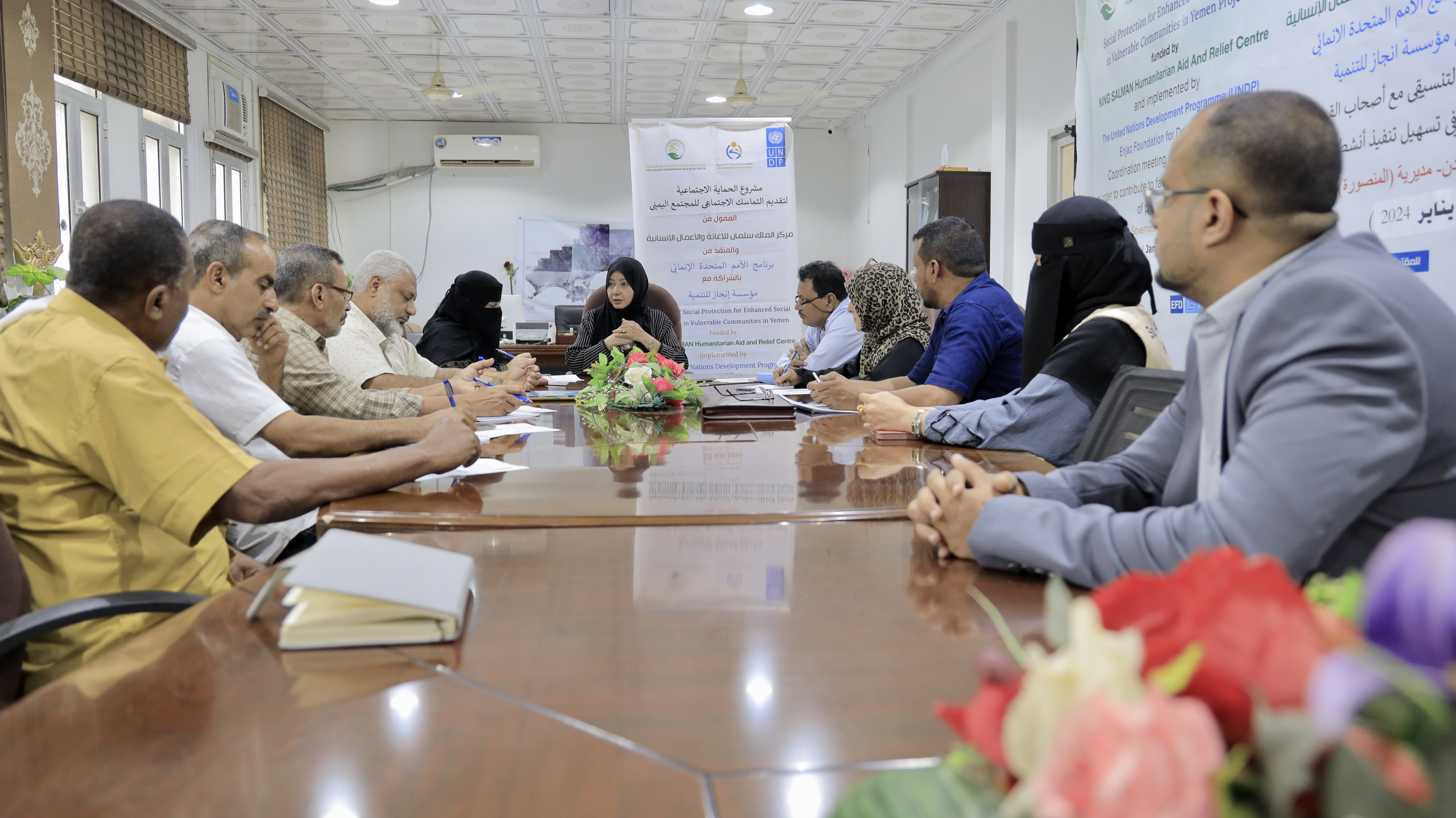
A Peace Committee Coordination Meeting in Aden
Women’s voices, perspectives, and experiences are essential in shaping inclusive and lasting solutions to sustainable peace and fostering genuine reconciliation. By recognizing and empowering women towards a more inclusive role in society, we pave the way for a more just, equitable, and peaceful world for all.
UNDP Yemen’s Social Protection to Provide Social Cohesion in Vulnerable Communities in Yemen Project, generously funded by the King Salman Humanitarian Aid and Relief Centre, is playing a pivotal role in fortifying peace committees by providing them with essential conflict resolution tools and resources. This strategic initiative aims to bolster the capacity of peace committees in Yemen to effectively address conflicts within communities, promoting harmony and stability amidst challenging circumstances. By equipping six peace committees in Aden (Al-Mansoura and Sheikh Otman), Hadramaut (Seiyun and Tareem) and Lahj (Tooralbaha and Alhota) with the necessary skills and support, we are not only enhancing their effectiveness but also fostering a culture of dialogue, co-existence, and peacebuilding across Yemen.
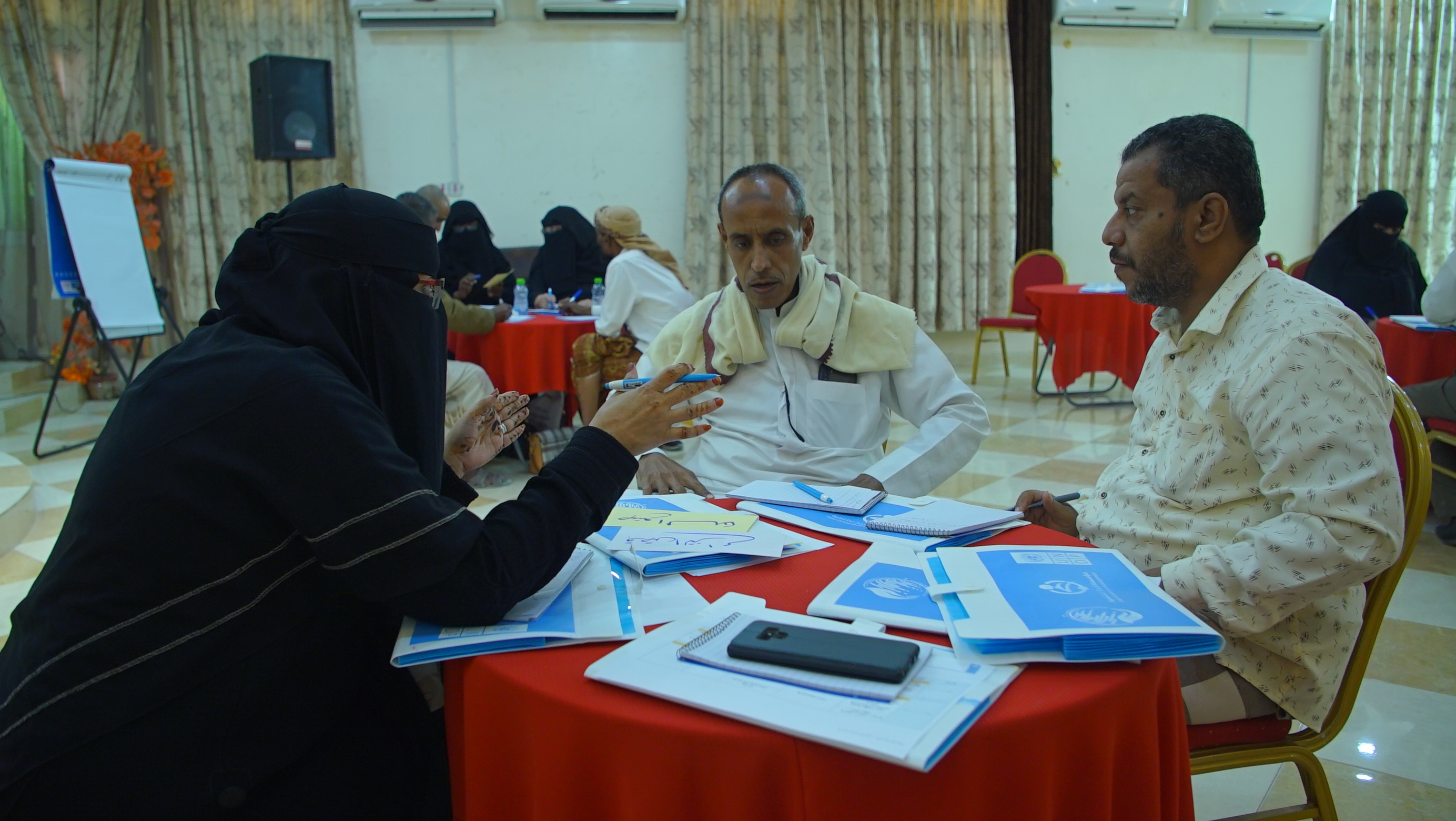
Peace Committee Training Session in Hadramaut, Seiyun
In the context of conflict resolution and peacebuilding, empowerment through awareness and training take on added significance. Women possess invaluable insights into the root causes of conflicts and the needs of their communities. By increasing the representation of women in all levels of decision-making, including committees and forums dedicated to peacebuilding, we can tap into this wealth of knowledge and experience.
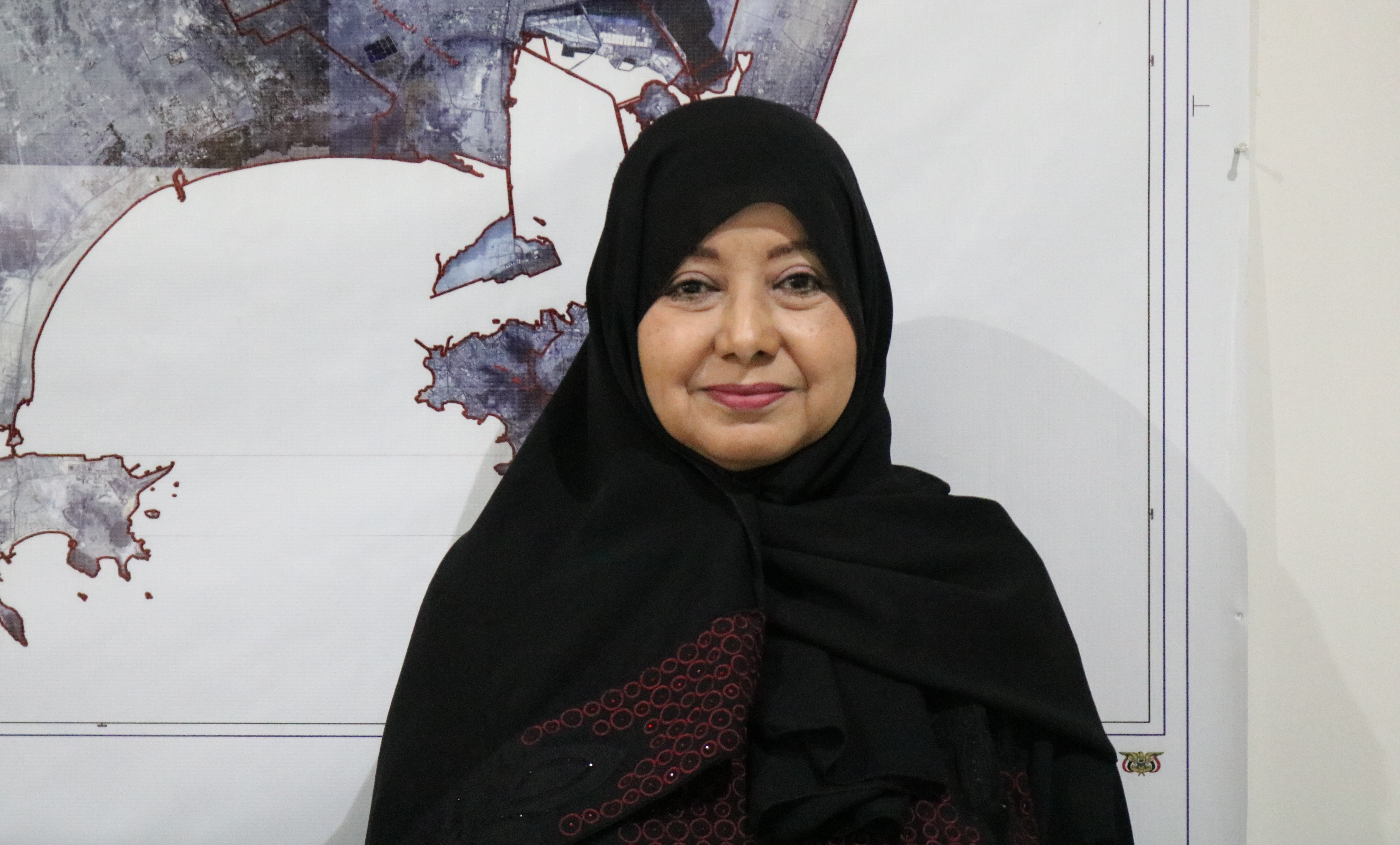
Intisar Saeed is the Director General in the Office of the Ministry of Planning and International Cooperation and the Head of the two peace committees in Aden. Intisar believes that, "The post-war era heralds numerous transformations—a time demanding flexibility, adaptability, and a nuanced understanding of circumstances. It signifies a phase dedicated to peacebuilding, collaborating with society, and navigating its complexities with flexibility. Women inherently embody these qualities, making their presence indispensable on peace committees."
For Intisar, "Empowerment happens through awareness; when women are empowered through awareness, remarkable shifts occur."
Therefore, promoting the inclusion of women in the civic sphere, from local community initiatives to national peacebuilding efforts, is not just a matter of equity—it is a strategic imperative for fostering lasting peace and prosperity.
Ahlam Ali is a member of the peace committee in Lahj Governorate, Alhota District.
Ahlam believes that Yemeni women possess the potential to contribute significantly as leaders in peacebuilding endeavors. For her, it is imperative to foster and reinforce women's involvement in decision-making processes, ensuring their active presence on committees.
She believes that "Enhancing awareness of the vital role women play in peace is paramount. Encouraging their active involvement across political, economic, and social spheres in Yemen is crucial."
Ahlam shares her training experience, which she believes bolstered her capabilities in leadership, negotiation, and conflict resolution skills; thus, it is essential to provide Yemeni women with adequate capacity and resources.
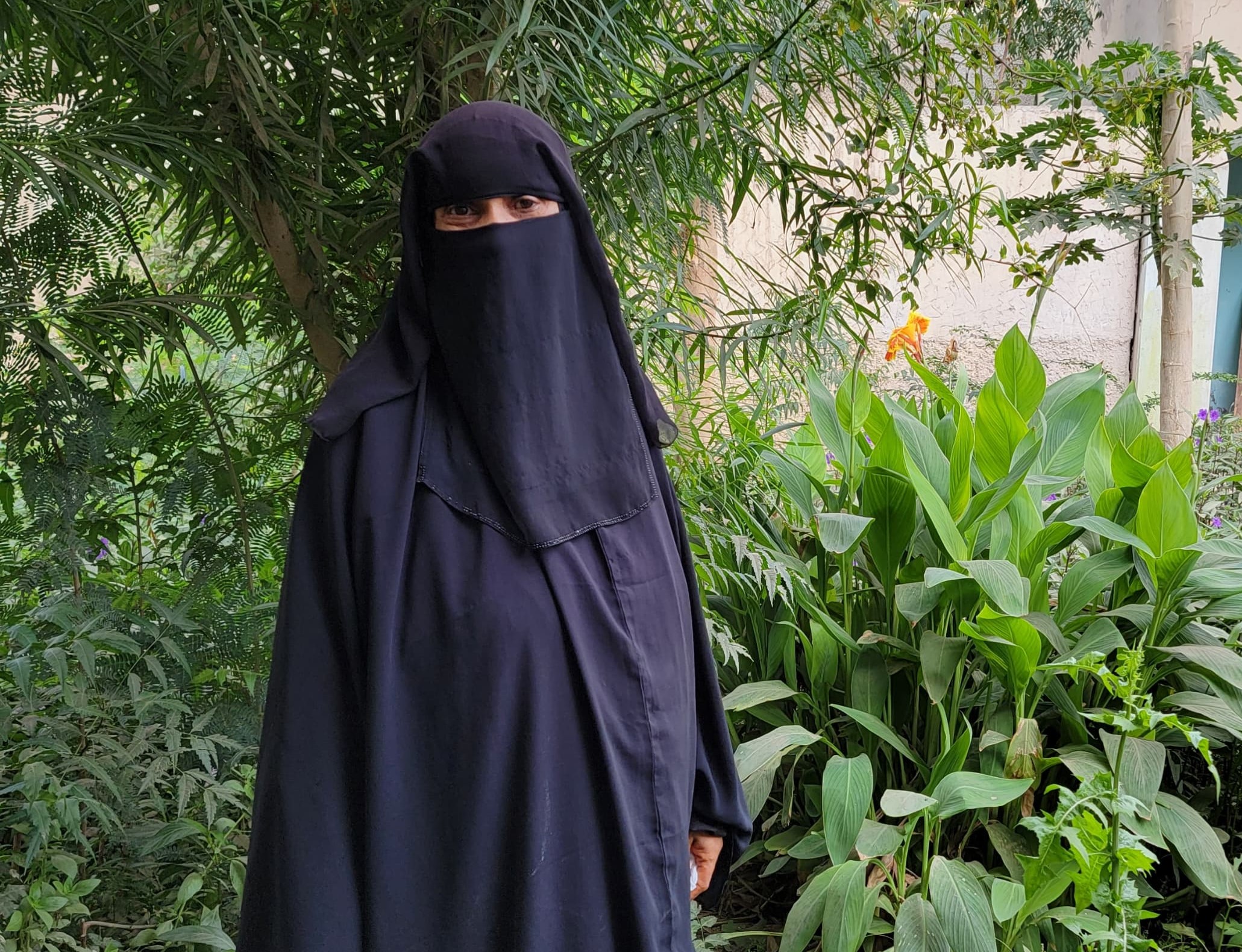
The participation of Yemeni women in peace committees is a vital aspect of the broader endeavor to empower and elevate the status of women in society. By providing them with fair representation and encouraging active involvement, women can contribute their valuable perspectives and expertise to decision-making processes concerning peace.
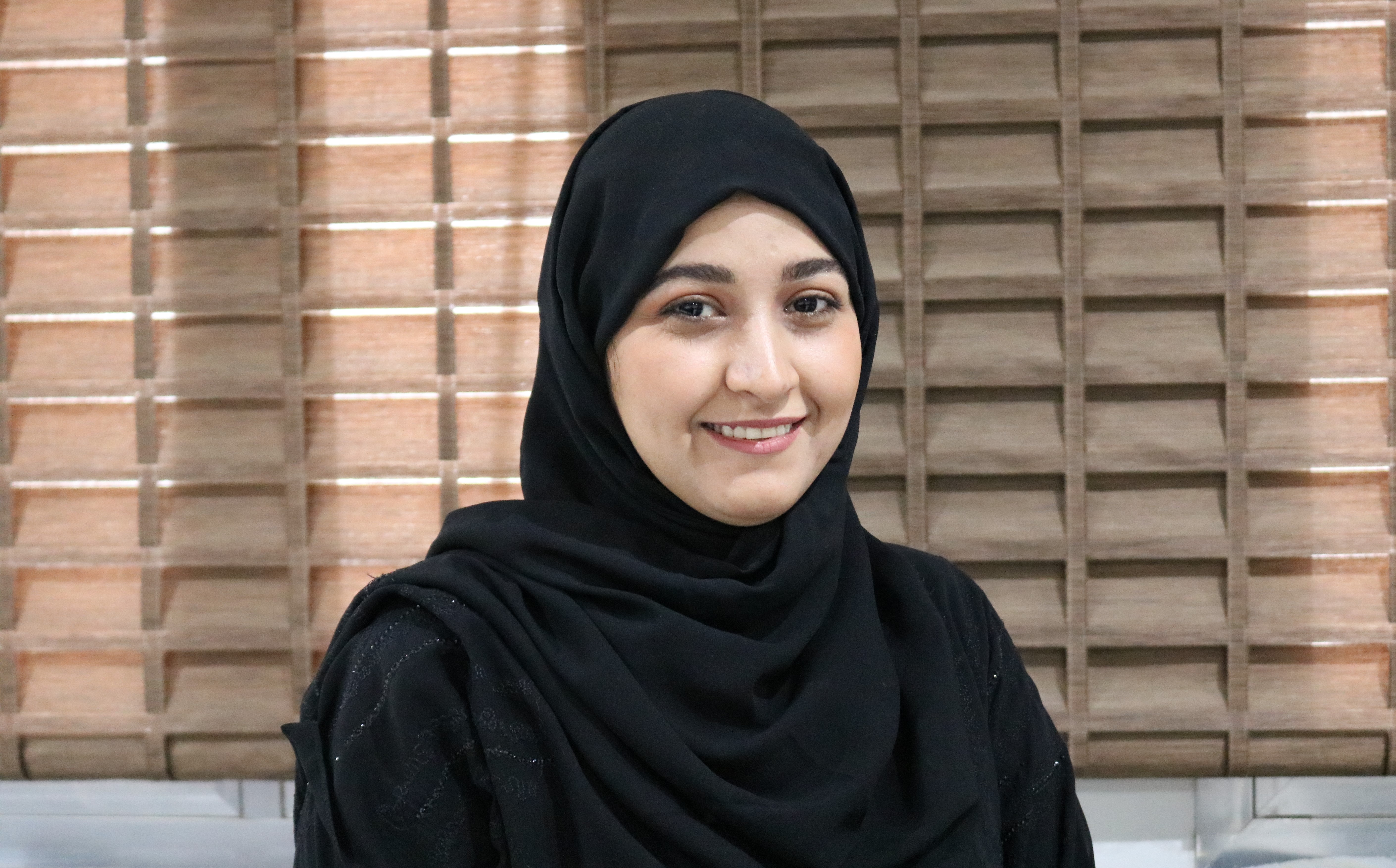
Azal Wadah is a presenter at Adania FM Radio and a member of a peace committee in Aden.
She maintains that "Peace cannot be fully achieved or sustained without the active involvement, contribution, and leadership of women".
Azal advocates for the increased representation of women on various committees, emphasizing that their insight into community needs and their access to households in their neighborhoods uniquely position them to understand conflicts and devise effective solutions. In her role as a radio presenter, she has addressed numerous women's issues by inviting guests from diverse social backgrounds, including politicians, to discuss solutions. She believes that her negotiation skills have enabled her to facilitate the convergence of various perspectives. Additionally, she recognizes that promoting her knowledge, peace skills and perspective has provided her with an advantage in collaborating with others to identify solutions collectively and contribute to building a healthy community.
Tereas Sadqa is an elected member of the local council and member of a peace committee in Aden.
According to Tereas, “Women play a pivotal role in fostering the growth and advancement of society through collaborative efforts with state institutions and international organizations. By spearheading educational and rehabilitation programmes tailored for women and girls, we enable the emergence of future leaders and champions.”
Tereas believes that Yemeni women have actively engaged in the arduous task of peacebuilding, contributing significantly to society despite facing numerous challenges. She emphasizes that their pivotal role during times of conflict underscores the imperative of integrating women as effective members in decision-making processes.
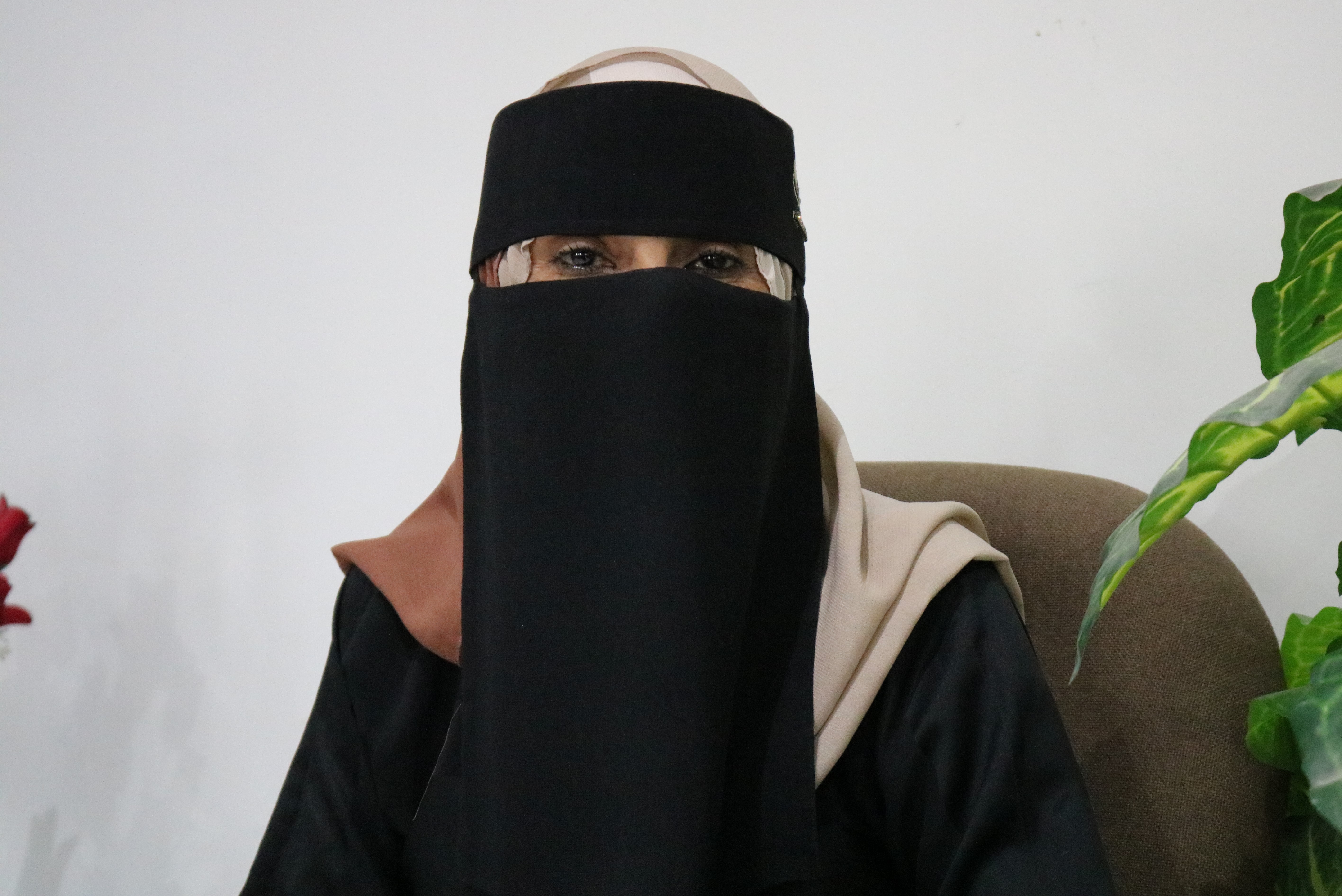
UNDP acknowledges the significance of harnessing the invaluable insights and contributions of women in advancing sustainable peace and fostering equitable development in Yemen. As part of this commitment, the Social Protection to Provide Social Cohesion in Vulnerable Communities in Yemen Project, implemented by UNDP Yemen and generously supported by the King Salman Humanitarian Aid and Relief Centre, aims to empower women within peace committees. By providing women with the necessary opportunities and tools, the project enables their active engagement in the peacebuilding process.
***
The Social Protection to Provide Social Cohesion in Vulnerable Communities in Yemen Project seeks to contribute to reduced vulnerability and strengthened resilience and social cohesion of targeted crisis- affected communities in Yemen through the creation of sustainable livelihoods and promotion of peacebuilding initiatives. This project is funded by the King Salman Humanitarian Aid and Relief Centre (KSrelief). The project targets the most vulnerable groups, including women, youth, unemployed Yemenis, marginalized groups such as Muhamasheen, Internally Displaced Persons, and people with disabilities, in six districts across Aden, Hadramaut and Lahj governorates. The project promotes local-level engagement of community institutions in identifying community priorities and implementing initiatives that tackle vulnerability to shocks and crises.

 Locations
Locations



